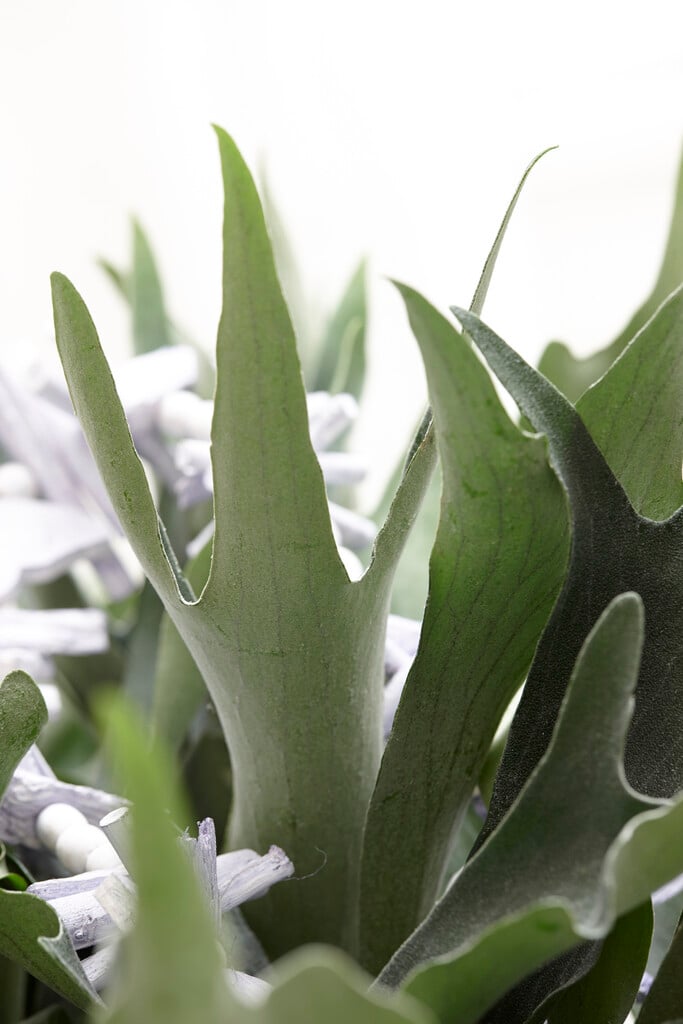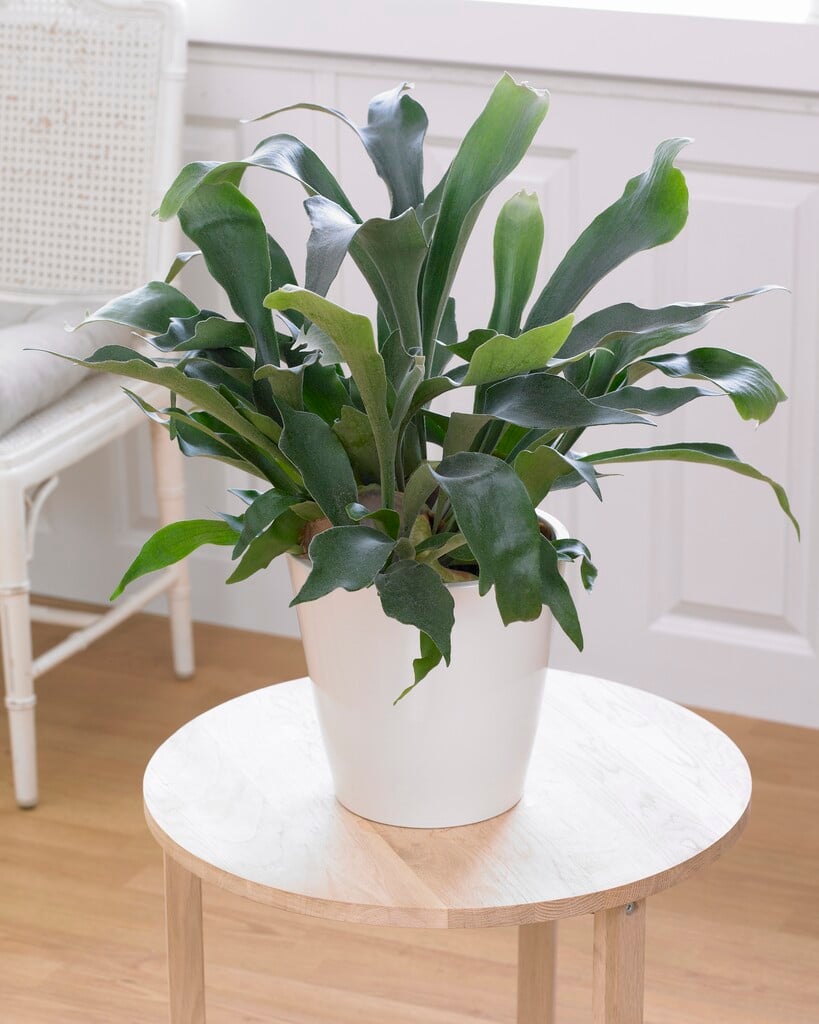Platycerium bifurcatum
common staghorn fern
An evergreen, epiphytic fern with heart-shaped sterile fronds and grey-green, arching, fertile fronds to 90cm in length, forked into strap-shaped segments, bearing brown spore patches beneath the tips
Other common names
antelope earsAustralian elk's horn fern
see morecommon stag's horn fern
elkhorn fern
Synonyms
Platycerium alcicorne misappliedSize
Ultimate height
0.5–1 metresTime to ultimate height
10–20 yearsUltimate spread
0.5–1 metresGrowing conditions
Moisture
Moist but well–drainedpH
NeutralColour & scent
| Stem | Flower | Foliage | Fruit | |
| Spring | Green Grey Silver | Brown | ||
|---|---|---|---|---|
| Summer | Green Grey Silver | Brown | ||
| Autumn | Green Grey Silver | Brown | ||
| Winter | Green Grey Silver | Brown |
Position
- Partial shade
Aspect
South–facing or West–facing or East–facing
Exposure
ShelteredDrought resistance
Yes Hardiness
H1BBotanical details
- Family
- Polypodiaceae
- Native to GB / Ireland
- No
- Foliage
- Evergreen
- Habit
- Tufted
- Genus
Platycerium are evergreen, epiphytic ferns with short rhizomes, and a tuft of rounded or heart-shaped sterile fronds, sometimes lobed on the upper margin, and erect or pendent, grey-green fertile fronds which are usually repeatedly forked
- Name status
Correct
- Plant range
- Asia Polynesia Australia
How to grow
Cultivation
Under glass grow epiphytically in equal parts leaf mould, coarse peat, sphagnum moss, loam and charcoal in bright filtered light. When in growth water freely in high humidity and apply a balanced liquid fertiliser monthly. Water sparingly in winter. Can be grown outdoors epiphytically. See Epiphytic Ferns for further advice
Propagation
Sow spores when ripe or detach plantlets
Suggested planting locations and garden types
- Mediterranean climate plants
- Low Maintenance
- Hedging and screens
Pruning
No pruning required
Pests
May be susceptible to scale insects
Diseases
Generally disease-free
Get involved
The Royal Horticultural Society is the UK’s leading gardening charity. We aim to enrich everyone’s life through plants, and make the UK a greener and more beautiful place.

